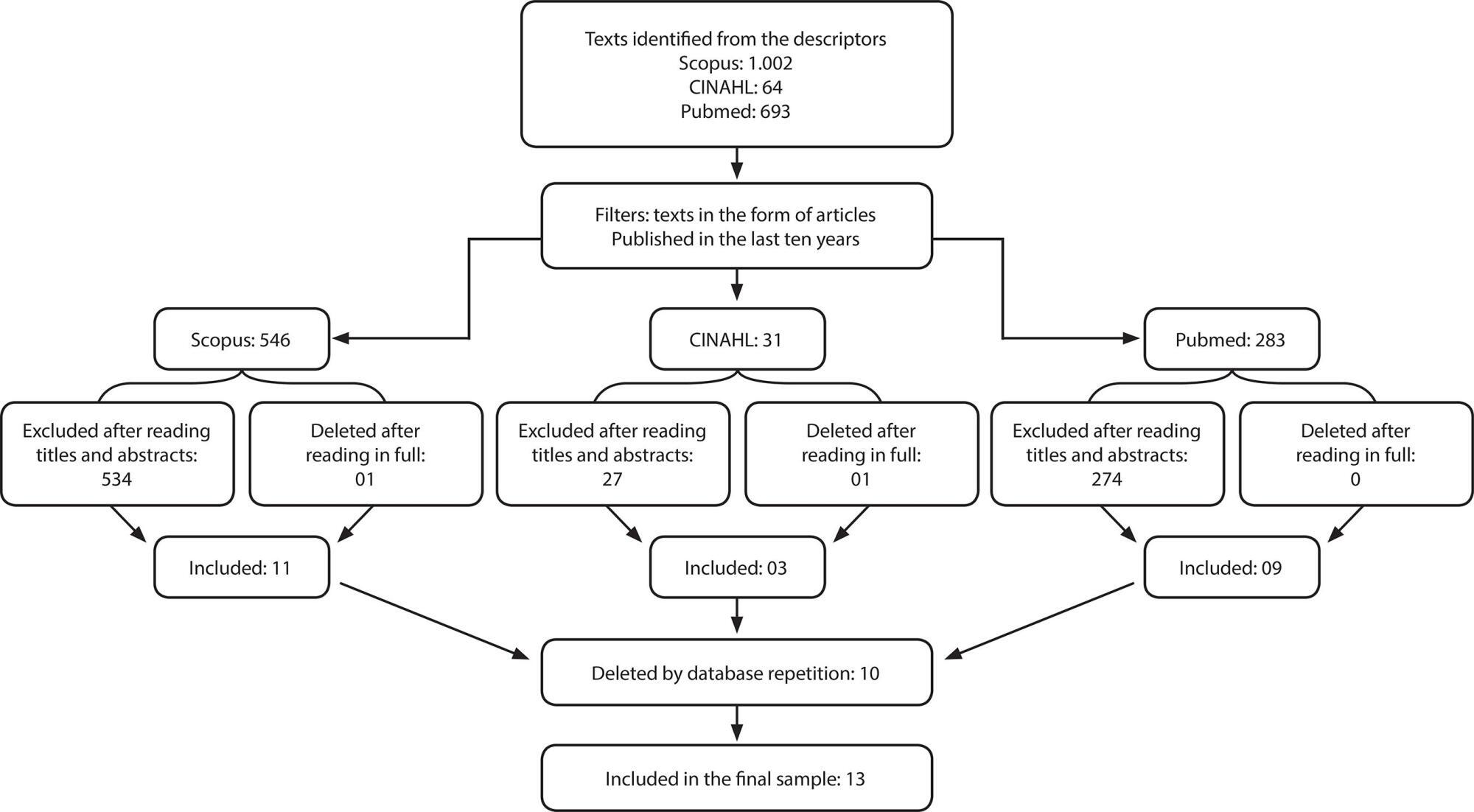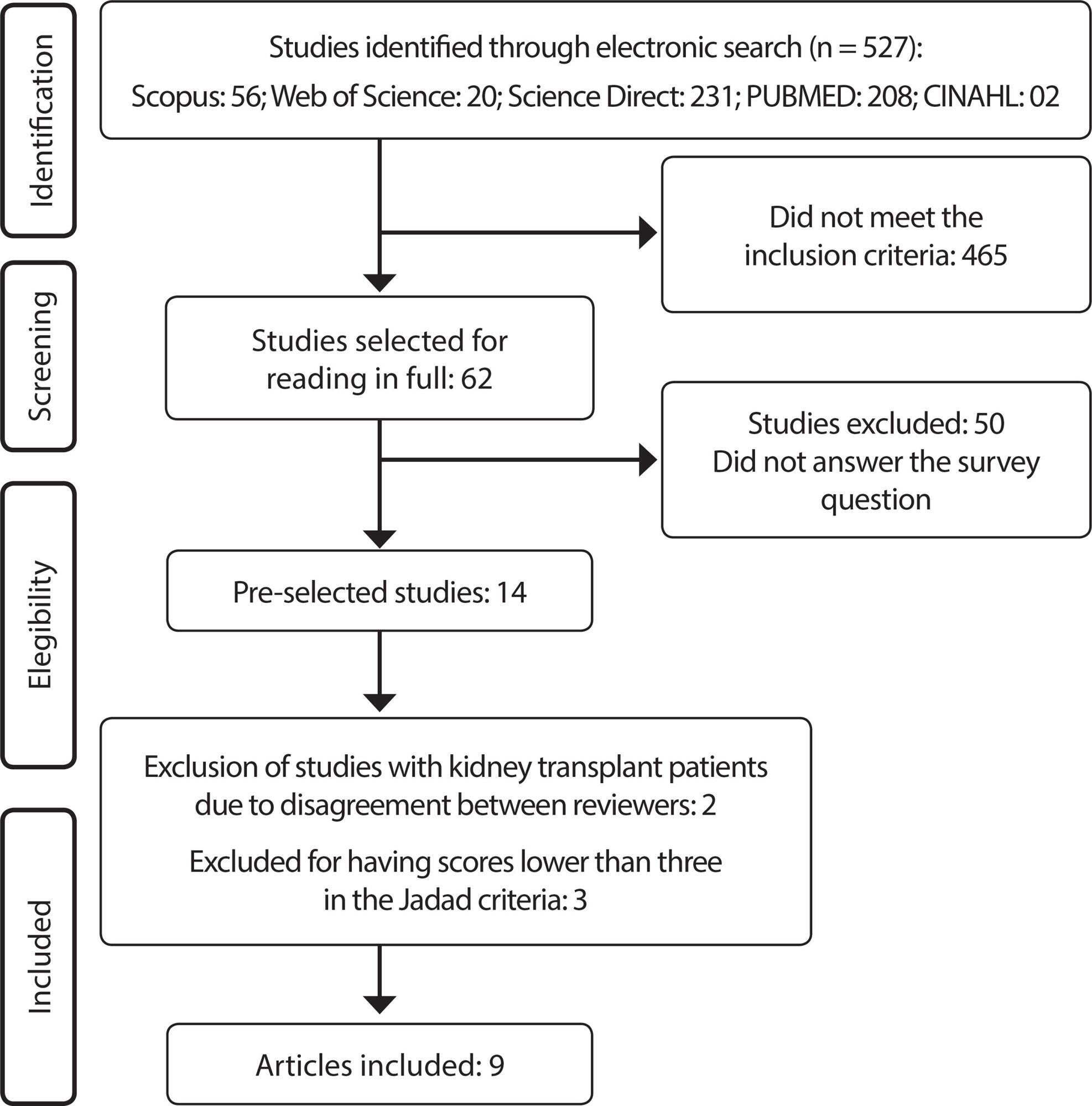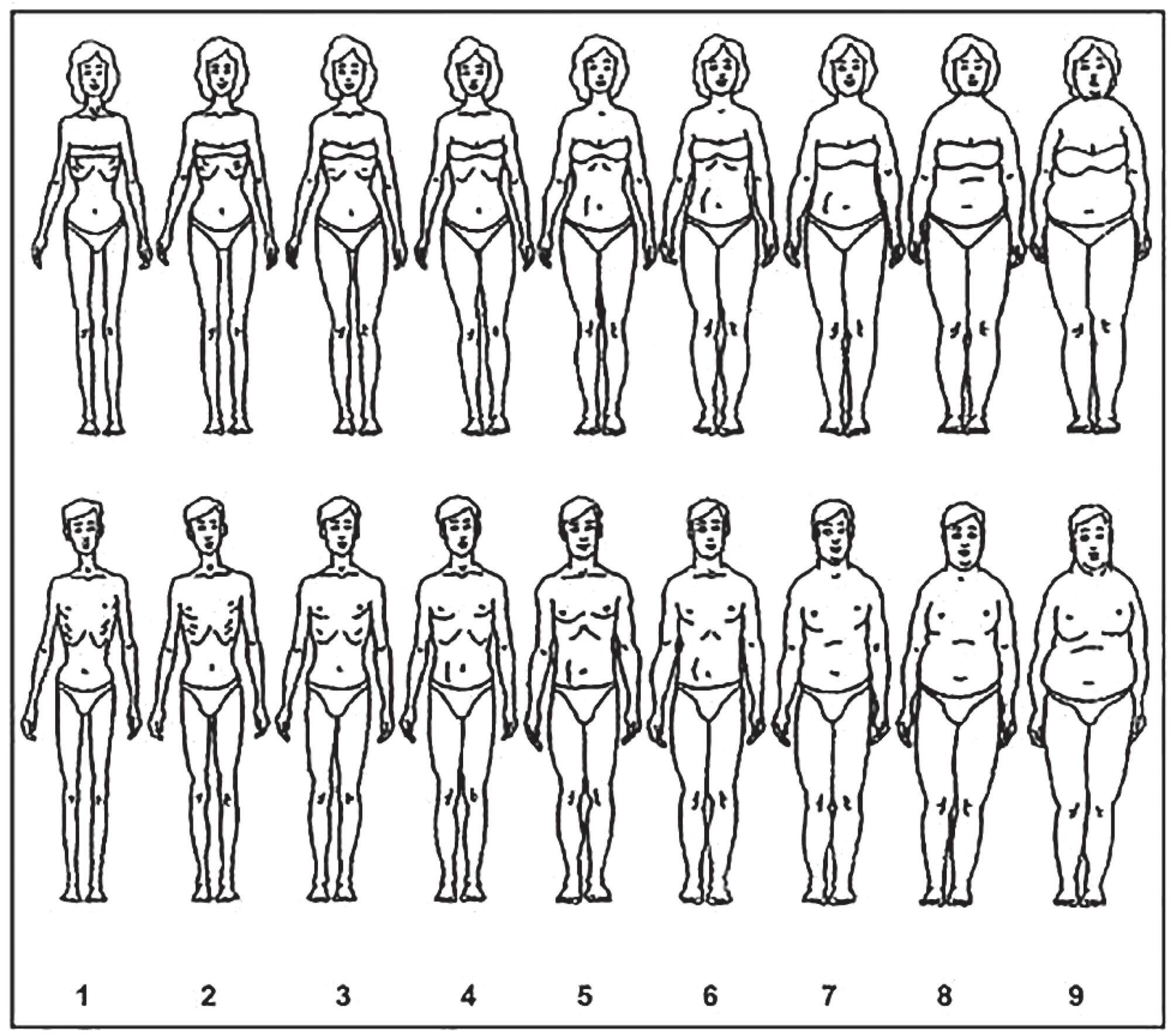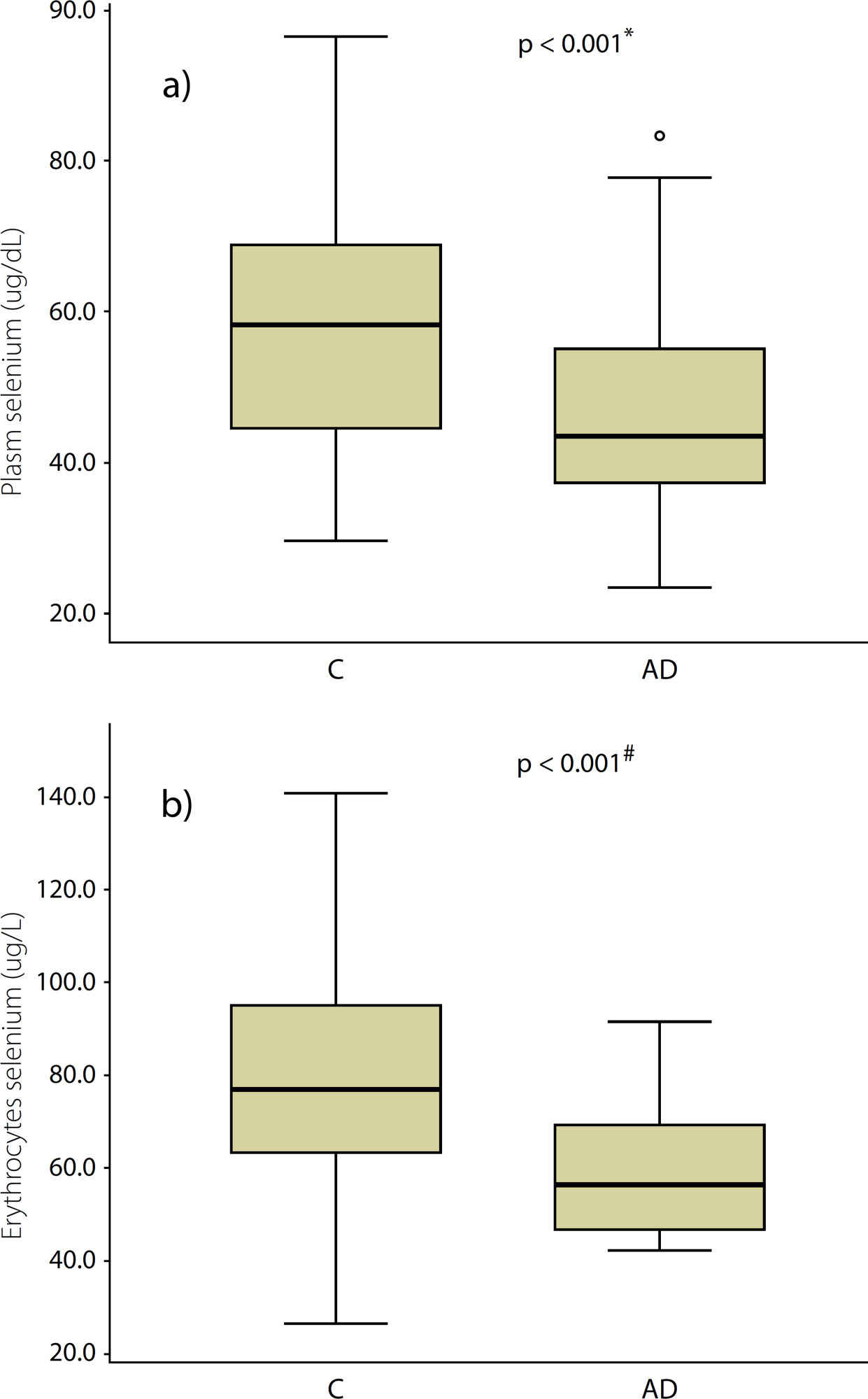-
RESEARCH
Social representations of sexuality for the elderly
Revista Brasileira de Enfermagem. 2015;68(4):662-667
01-01-2015
Abstract
RESEARCHSocial representations of sexuality for the elderly
Revista Brasileira de Enfermagem. 2015;68(4):662-667
01-01-2015DOI 10.1590/0034-7167.2015680413i
Views0See moreABSTRACT
Objective:
to know the social representations of sexuality for the elderly, based on the Social Representation Theory.
Method:
study performed in a Basic Family Health Unit in Maracanau-CE, Brazil, with 30 elderly adults. Data were collected from March through April of 2013, using the free word evocation technique. Data were organized and processed using the EVOC 2000.software
Results:
the subjects evoked 150 words associated with the evocator word “sexuality”. Out of these, 43 were different. At the possible core of the representation of sexuality for the elderly, the following words were found: love, affection and respect. Sex, companionship, understanding and coexistence composed the intermediate elements of representation.
Conclusion:
the performed analyses pointed to love, respect and affection as central elements that structured and organized the social representation of sexuality in the elder years for the group studied.
-
RESEARCH
Post-accident work behavior in caring for people with HIV/Aids
Revista Brasileira de Enfermagem. 2015;68(4):656-661
01-01-2015
Abstract
RESEARCHPost-accident work behavior in caring for people with HIV/Aids
Revista Brasileira de Enfermagem. 2015;68(4):656-661
01-01-2015DOI 10.1590/0034-7167.2015680412i
Views0ABSTRACT
Objective:
To identify post-accident conduct in the workplace by health professionals in caring for people with HIV/Aids.
Method:
A qualitative and descriptive research study with a socio-historical perspective (1986-2006), performed in a reference hospital for infectious diseases in the State of Santa Catarina. To collect data, interviews were conducted with oral history among 23 health workers and, for the treatment of data, Bardin’s content analysis was used.
Results:
Post-accident behaviors emerged that included assessment, accident records, chemoprophylaxis when necessary, support, monitoring of the injured worker, and mainly psychological support.
Conclusion:
In situations in which the accident could not be avoided, post-exposure behaviors were important biosecurity strategies mentioned by health workers caring for patients with HIV/Aids, in the sense of minimizing the possible transmission of the HIV virus.
Keywords:Acquired Immunodeficiency SyndromeHealth ProfessionalsOccupational AccidentsOccupational HealthOccupational RisksSee more -
RESEARCH
Nursing care management for children hospitalized with chronic conditions
Revista Brasileira de Enfermagem. 2015;68(4):641-648
01-01-2015
Abstract
RESEARCHNursing care management for children hospitalized with chronic conditions
Revista Brasileira de Enfermagem. 2015;68(4):641-648
01-01-2015DOI 10.1590/0034-7167.2015680410i
Views0See moreABSTRACT
Objective:
to understand the interactions of nurses managing nursing care for the hospitalized child with a chronic condition.
Method:
Theoretical and methodological references were used, Complex Thought and grounded theory, respectively. In the study 18 subjects have participated arranged in three groups: nurses, nursing technicians and family members. A semi-structured interview was used as technique for data collection. The data analysis followed three stages of coding: open, axial and selective.
Results:
the category “Needing to manage nursing care to the hospitalized child with chronic condition in Pediatric Inpatient Unit” and their subcategories show the complex inter subjective bindings established by nurses that support the practice of nursing care management.
Conclusion:
There are difficulties for nursing professionals to interact with the child’s family and the dialogical order/disorder/interaction/organization in the implementation of the management process of care is.
-
RESEARCH
Functional disability and socioeconomic and demographic factors in elderly
Revista Brasileira de Enfermagem. 2015;68(4):633-640
01-01-2015
Abstract
RESEARCHFunctional disability and socioeconomic and demographic factors in elderly
Revista Brasileira de Enfermagem. 2015;68(4):633-640
01-01-2015DOI 10.1590/0034-7167.2015680409i
Views0See moreABSTRACT
Objective:
to verify the prevalence of functional disability and associated socioeconomic and demographic factors in elderly patients of Campina Grande/PB.
Method:
cross-sectional study with elderly patients of both genders. The variables associated with functional disability were assessed using Poisson regression.
Results:
A total of 420 elderly patients were included (68.1% women). The highest prevalence of functional disability were found among females aged 80 or older, white, widowed, of economic classes D/E , who lived alone, with frequency of contacts of up to 224 people and diversity of contacts of up to 14 people. After multivariate analysis, statistically significant association was observed between functional disability, gender and age group.
Conclusion:
the association between functional disability gender and age group is shown to be an important guidance for health interventions since it will allow health services to plan actions aiming to improve, maintain or restore the functional capacity of the elderly population.
-
RESEARCH
Hypertension and Diabetes Mellitus Program evaluation on user’s view
Revista Brasileira de Enfermagem. 2015;68(4):626-632
01-01-2015
Abstract
RESEARCHHypertension and Diabetes Mellitus Program evaluation on user’s view
Revista Brasileira de Enfermagem. 2015;68(4):626-632
01-01-2015DOI 10.1590/0034-7167.2015680408i
Views0See moreABSTRACT
Objectives:
to evaluate the program proposed by the Reorganization Care Plan for Hypertension and Diabetes Mellitus on user’s view, and describe aspects of the trajectory of the participants correlating with the program’s evaluation.
Method:
evaluative study with a qualitative approach conducted in health units with the Family Health Strategy, in a city of the metropolitan region of Curitiba, in the period from September to March, 2012. A total of 30 adults with hypertension and/or Diabetes mellitus were interviewed. Data were analyzed through content analysis.
Results:
Four categories were identified: Disease diagnosis; Reasons for the program need; Knowledge of the program, and program evaluation.
Conclusion:
there was the recognition of the orientations, and the monitoring of activities developed, with emphasis in cost reduction for users.
-
RESEARCH
Violence in the eye of adolescents: education intervention with Culture Circles
Revista Brasileira de Enfermagem. 2015;68(4):617-625
01-01-2015
Abstract
RESEARCHViolence in the eye of adolescents: education intervention with Culture Circles
Revista Brasileira de Enfermagem. 2015;68(4):617-625
01-01-2015DOI 10.1590/0034-7167.2015680407i
Views0See moreABSTRACT
Objective:
to apply the methodology of Culture Circles on adolescents as a strategy for health education of nurses in the construction of the collective knowledge of the thematic violence.
Method:
action research type and qualitative study. Participants were 11 adolescents from a public school in Recife, PE, Brazil. Data production in Culture Circles included the participant observation with field diary, photographic recording and filming, as well as the photovoice technique. The analysis was performed by triangulating data in dialogue with the literature.
Results:
it was shown that the problematizing action provided by the Culture Circle made possible to create situations in which adolescents felt invited to critically refl ect on the phenomenon of violence in all its complexity.
Conclusion:
the health education intervention, performed by Culture Circles, added learning and mutual growth subsidizing nursing care actions that excel at leadership and autonomy of adolescents.

-
RESEARCH
Social representations about religion and spirituality
Revista Brasileira de Enfermagem. 2015;68(4):609-616
01-01-2015
Abstract
RESEARCHSocial representations about religion and spirituality
Revista Brasileira de Enfermagem. 2015;68(4):609-616
01-01-2015DOI 10.1590/0034-7167.2015680406i
Views0See moreABSTRACT
Objective:
to identify the social representations about the concepts of spirituality and religion of of health teachers.
Method:
exploratory and descriptive study, based on a qualitative approach. 25 subjects participated in it. The following instruments were used to collect data: questionnaire to identify the profile; questionnaire of free association, whose inducing words were religion and spirituality, and an interview based on the scale FICA (Puchalski, 2006).
Results:
the representations about religion and spirituality, for professors, are forged around the faith in God and it gives them meaning and purpose to deal with the challenges of personal and professional living.
Conclusion:
there are still barriers that need to be overcome with a view to a comprehensive care. For this, it is essential to incorporate spirituality in the process in the curricula of health courses.

-
Hospital care and urinary incontinence in the elderly
Revista Brasileira de Enfermagem. 2019;72:284-293
12-05-2019
Abstract
Hospital care and urinary incontinence in the elderly
Revista Brasileira de Enfermagem. 2019;72:284-293
12-05-2019DOI 10.1590/0034-7167-2018-0273
Views0See moreABSTRACT
Objective:
to identify factors inherent in hospital care that favor urinary incontinence in the elderly.
Method:
an integrative review with Scopus, CINAHL and Pubmed searches. Includes original articles, no language restriction, published between 2008 and 2018. Rated level of recommendation and level of evidence were assessed using the Oxford Center for Evidence-Based Medicine classification. Exploited content through thematic analysis in light of the Donabedian model.
Results:
13 articles constituted the sample. There were factors such as the unjustified and indiscriminate use of devices such as the geriatric diaper; hospital structure adversely affecting the needs of the elderly; and deficit in screening, risk identification and underreporting of the problem favor urinary incontinence in the hospitalized elderly.
Conclusion:
modifiable factors related to hospital structures and care processes favor both the onset and worsening of urinary incontinence in the elderly.

-
ORIGINAL ARTICLE
Nurse safety culture in the services of a university hospital
Revista Brasileira de Enfermagem. 2019;72(3):767-773
06-27-2019
Abstract
ORIGINAL ARTICLENurse safety culture in the services of a university hospital
Revista Brasileira de Enfermagem. 2019;72(3):767-773
06-27-2019DOI 10.1590/0034-7167-2018-0376
Views0See moreABSTRACT
Objective:
To evaluate nurse safety culture in a teaching hospital, as well as to verify differences in the safety culture dimensions between services.
Method:
cross-sectional, quantitative study, conducted from October to December 2015, in a university hospital. The instrument Hospital Survey on Patient Safety Culture was applied.
Results:
A total of 195 nurses from four different services participated in the study. Significant difference between services were identified for five dimensions of safety culture: organizational learning (P=0.012); return of information and communication about error (P=0.014); management support for patient safety (P=0.001); general perceptions about patient safety (P=0.005); and frequency of event notification (P=0.003).
Conclusion:
The medical clinic service had the highest statistical difference between the dimensions. These evaluations allow managers to identify the differences between the same hospital’s services, serving as a warning and assisting in the services’ improvement.
-
REVIEW
Effects of acupuncture in patients with chronic kidney disease: a systematic review
Revista Brasileira de Enfermagem. 2020;73(4):e20180784
05-18-2020
Abstract
REVIEWEffects of acupuncture in patients with chronic kidney disease: a systematic review
Revista Brasileira de Enfermagem. 2020;73(4):e20180784
05-18-2020DOI 10.1590/0034-7167-2018-0784
Views0See moreABSTRACT
Objectives:
to analyze the effects of acupuncture techniques in patients with chronic kidney disease.
Methods:
a systematic review conducted in six databases, from September to December 2017, following the Preferred Reporting Items for Systematic Reviews and Meta-Analyses’ criteria. The following descriptors were used: Acupuncture AND Chronic Renal Insufficiency AND Clinical Trial.
Results:
nine studies were selected; the acupuncture techniques used were auriculotherapy, electroacupuncture and acupressure aimed at improving quality of life, fatigue, sleep and clinical variables of the disease. The studies that assessed quality of life, sleep and fatigue presented significant benefits. Studies that assessed quality of life, sleep and fatigue presented significant benefits. There was no statistical significance in the improvement of serum creatinine levels and glomerular filtration rate. Methodological and assessment tools’ divergence made impossible meta-analysis
Conclusions:
studies reinforce the positive effect of acupuncture in improving quality of life, fatigue and sleep in patients.

-
ORIGINAL ARTICLE
Configuration of power relations in physicians and nurses’ professional practices
Revista Brasileira de Enfermagem. 2020;73:e20180629
05-15-2020
Abstract
ORIGINAL ARTICLEConfiguration of power relations in physicians and nurses’ professional practices
Revista Brasileira de Enfermagem. 2020;73:e20180629
05-15-2020DOI 10.1590/0034-7167-2018-0629
Views0ABSTRACT
Objective:
to analyze the configuration of power relations constituted in and by the knowledge and daily practices of physicians and nurses in an Intensive Care Unit (ICU).
Method:
qualitative study in which data were collected through interviews with physicians and nurses from an ICU of a hospital in Belo Horizonte, Minas Gerais. A semi-structured script was used. Data were analyzed through discourse analysis in a Foucaultian perspective.
Results:
three categories were developed – Professional Identity: self-recognition in the profession; Discipline: individualizing attitudes or collective need?; and Circularity of knowledge and power in the constitution of daily practices.
Final considerations:
the identity, discipline and circulation of power are connected in a continuous movement of subjectivation of the subject, which, in turn, uses discourse as a persuasion strategy to modify the position taken over in different situations thereby causing the circulation of power.
Keywords:Health Knowledge, Attitudes, PracticeHospitalsPhysician-Nurse RelationsPower (Psychology)Professional PracticeSee more -
ORIGINAL ARTICLE
Perception of body image and nutritional status in adolescents of public schools
Revista Brasileira de Enfermagem. 2019;72:229-235
12-05-2019
Abstract
ORIGINAL ARTICLEPerception of body image and nutritional status in adolescents of public schools
Revista Brasileira de Enfermagem. 2019;72:229-235
12-05-2019DOI 10.1590/0034-7167-2018-0644
Views0See moreABSTRACT
Objective:
To assess body image dissatisfaction among adolescents from Northern Minas Gerais.
Method:
This is a cross-sectional study with adolescents of both sexes, enrolled in the sixth to ninth year in the municipal public education network. A questionnaire was used, composed of sociodemographic and body image variables, which was obtained through a scale of silhouette figures. The anthropometric measurements of weight and height were performed to estimate body mass index. The correlation between the classification of the body mass index and the body image of adolescents was estimated through weighted Kappa.
Results:
A total of 535 adolescents participated, and 24.5% had different classifications between the real and ideal body image. The Kappa index for the classification of body image was 0.51, 0.58 and 0.32 for the total of adolescents, girls and boys, respectively.
Conclusion:
Public school adolescents are dissatisfied with their self-body image.

-
Selenium concentrations in elderly people with Alzheimer’s disease: a cross-sectional study with control group
Revista Brasileira de Enfermagem. 2021;74:e20200984
07-05-2021
Abstract
Selenium concentrations in elderly people with Alzheimer’s disease: a cross-sectional study with control group
Revista Brasileira de Enfermagem. 2021;74:e20200984
07-05-2021DOI 10.1590/0034-7167-2020-0984
Views0See moreABSTRACT
Objective:
To investigate possible differences in plasma and erythrocyte concentrations of selenium among elderly with and without a diagnosis of Alzheimer’s disease (AD).
Methods:
Cross-sectional study, performed with an elderly group with Alzheimer’s disease, diagnosed by a geriatric doctor, and compared to an elderly group without the disease, equaling gender, education, and age. Atomic absorption spectrophotometry determined plasma and erythrocyte concentrations of total selenium (Set).
Results:
The mean age was 74.41±7.1 years in the Alzheimer’s disease group and 71.46±5.1 years among the control group. The Alzheimer’s disease group presented lower plasma concentrations (mean of 45.29±14.51 µg/dL vs. 55.14±14.01 µg/dL; p=0.004), and erythrocyte Set (median of 56.36 µg/L vs. 76.96 µg/L; p<0.001). The logistic regression model indicated an association between erythrocyte Set concentrations and diagnosis of Alzheimer’s disease (p=0.028).
Conclusion:
Elderly with Alzheimer’s disease present lower selenium concentrations in the evaluated organic compartments.

-
ORIGINAL ARTICLE
Mental health in primary health care: health-disease according to health professionals
Revista Brasileira de Enfermagem. 2019;72(6):1609-1617
10-21-2019
Abstract
ORIGINAL ARTICLEMental health in primary health care: health-disease according to health professionals
Revista Brasileira de Enfermagem. 2019;72(6):1609-1617
10-21-2019DOI 10.1590/0034-7167-2018-0743
Views0See moreABSTRACT
Objective:
to analyze perceptions of the Family Health Strategy (FHS) professional team about mental health-disorder and to identify health actions developed by the team for people with mental disorders.
Method:
a qualitative study of a Marxist theoretical framework and a dialectical method. 99 FHS middle and higher level professionals from São Paulo participated. Semi-structured interviews were conducted. Data were submitted to ALCESTE software and Thematic Content Analysis.
Results:
there were three empirical categories: Training in Mental Health; Perception of the FHS professional about mental health-disorder; and Health actions developed by the FHS team with people with mental disorders. Actions that converge and diverge from the psychosocial care model were identified.
Final considerations:
there is an effort from professionals to work according to the psychosocial care model, but it is necessary to invest in the Permanent Education in Health of these professionals to overcome barriers and foster successful territorial actions.
-
ORIGINAL ARTICLE
Quality of life at work in a central sterile processing department
Revista Brasileira de Enfermagem. 2020;73(2):e20180792
03-09-2020
Abstract
ORIGINAL ARTICLEQuality of life at work in a central sterile processing department
Revista Brasileira de Enfermagem. 2020;73(2):e20180792
03-09-2020DOI 10.1590/0034-7167-2018-0792
Views0See moreABSTRACT
Objectives:
to evaluate the quality of life of nursing professionals who work in a central sterile processing department.
Methods:
a descriptive, quantitative, exploratory study, conducted with 82 nursing professionals working in the Central Sterile Processing Department of a University Hospital, from September to November 2017. A semi-structured instrument and the questionnaire “Medical Outcomes Study Short-Form 36” were used. Results: most of the participants were female, married, aged 31-40 years; 47.6% with 6-10 years of profession, and 82.9% reported working in CSPD for 1-5 years. The most affected quality of life domains were Pain, Vitality, General Health Status and Social Aspects.
Conclusions:
This study showed a need for rethinking and re-creating the labor dynamics in CSPD to improve the quality of life of these nursing professionals.
Search
Search in:
Nuvem de Tags
Aged (144) Atenção Primária à Saúde (239) COVID-19 (104) Cuidados de Enfermagem (269) Educação em Enfermagem (151) Educação em Saúde (139) Enfermagem (930) Estudos de Validação (131) Health Education (144) Idoso (208) Mental Health (149) Nursing (987) Nursing Care (306) Patient Safety (151) Primary Health Care (284) Qualidade de Vida (104) Quality of Life (106) Saúde Mental (145) Segurança do Paciente (150) Validation Studies (108)



